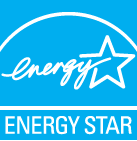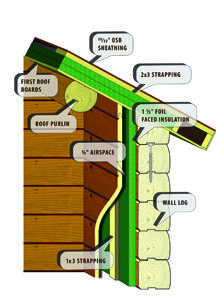 You may have already guessed it, but in Maine we take energy efficiency pretty seriously. So it makes sense that Maine would take a leadership role in linking energy savings and homeownership through MaineHousing (Maine State Housing Authority).
You may have already guessed it, but in Maine we take energy efficiency pretty seriously. So it makes sense that Maine would take a leadership role in linking energy savings and homeownership through MaineHousing (Maine State Housing Authority).
Now Maine, in coordination with MaineHousing, is the first state to offer Energy Star Mortgages, with primary mortgages for homes that can show a 20% energy efficiency improvement over previous use or a “standard home,” as well as loans for home energy improvement for low and moderate income families. Energy Star Mortgages are made through participating Maine banks.  According to MaineHousing’s director, Dale McCormick (left), “Maine was the first state to launch Energy Star Mortgages because we had all the elements—energy conservation, weatherization, and home loan funding—under one agency roof. We also had a long-term commitment to significant energy programs and finding creative ways to finance housing.” She said that MaineHousing had already developed their own Green Building Standards in 2005, so many of the pieces were already in place. “Since we’ve started our green initiatives we’ve trained about 300 Certified Energy Auditors in Maine and other New England states,” McCormick added.
According to MaineHousing’s director, Dale McCormick (left), “Maine was the first state to launch Energy Star Mortgages because we had all the elements—energy conservation, weatherization, and home loan funding—under one agency roof. We also had a long-term commitment to significant energy programs and finding creative ways to finance housing.” She said that MaineHousing had already developed their own Green Building Standards in 2005, so many of the pieces were already in place. “Since we’ve started our green initiatives we’ve trained about 300 Certified Energy Auditors in Maine and other New England states,” McCormick added.
For homebuyers looking for additional incentives, an Energy Star Mortgage will be funded through a participating bank. Howard Banker, Senior Financial Consultant – Energy Efficiency Mortgage Project at the Energy Programs Consortium (EPC) [http://energyprograms.org/index.html] in Washington, D.C., worked directly with McCormick and MaineHousing to develop the Energy Star weatherization loans and mortgages. “Marrying energy efficiency to mortgage lending led to what we thought was a great tool to encourage energy efficiency in homes, the Energy Star Mortgage,” said Banker.
The Energy Star Mortgage requirements are relatively simple:
- 20% Savings. The home must display energy efficiency of at least 20% savings over the home’s previous energy use or that of a “standard home.” If the home is already certified as an Energy Star Home, it automatically qualifies for an Energy Star Mortgage.
- Certified Audit. The home must be audited by a state-approved Certified Auditor, using verified, accurate audit tools, such as blower door testing. For a list of Maine certified auditors click here. Or, check with your state housing agency or mortgage lender to locate a certified energy auditor in your area.
- Financial Institution Incentive. The bank of mortgage lender must offer an incentive to the homebuyer: a reduction in the interest rate, points or other incentive.
- Other conventional loan requirements including a limit of $479,000 for the amount of the mortgage and other income and credit qualifications must be met for Energy Star Mortgages.
Will your Katahdin Cedar Log Home qualify for an Energy Star Mortgage? Based on our experience with green  certification, as well as energy efficient options like the R-23 Energy Envelope System, we believe the answer is yes. If you aren’t already planning to include a certification program in your planning process, you may want to consider working with your dealer to identify programs and benefits available in our area. In many cases, for a small upfront investment in certification, you may be able to reap significant rewards, including an Energy Star Mortgage.
certification, as well as energy efficient options like the R-23 Energy Envelope System, we believe the answer is yes. If you aren’t already planning to include a certification program in your planning process, you may want to consider working with your dealer to identify programs and benefits available in our area. In many cases, for a small upfront investment in certification, you may be able to reap significant rewards, including an Energy Star Mortgage.
We see this commitment to home energy efficiency as part of a larger trend to keep America competitive and environmentally focused. Add the Federal and state incentives for using alternative energy to the incentives of an Energy Star Mortgage, and there are some tangible benefits for being more energy efficient for the homebuyer. This trend has been amplified by recent Federal legislation, which boosted the funding for energy and weatherization grants to states from $240 million in 2008 to $5.4 billion in 2009.
